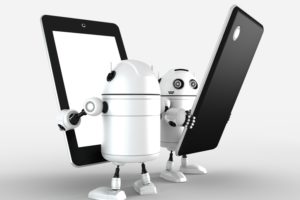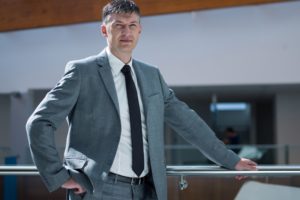Dr. Lee realizes that we do not reduce our value to double-down on how we make a real human being. Dr. Kai-Phu Lee, a pioneer in the field of Artificial Intelligence, has two daughters. A fashion designer. Another photographer. Instead of going into their computer science, they pursued their heart, passion, and skills.
Lee encouraged him to do what he liked. A man’s work as a machine gave him a unique glimpse of how to separate him from the machines. AI Servers, Dr. Lee examines the race between China and Silicon Valley for the main intellectual intelligence. I give other columns to dig deep into the two global superpowers. I chose to spend my conversation with Lee in the rest of his book, explaining how to develop at the age of artificial intelligence.
Bad News:
First, bad news. Artificial Intelligence takes on human jobs. According to Lee, in the next fifteen years, artificial intelligence can replace all the jobs in the United States with “technical” instead of 40 to 50%. Lee makes an important exception. This does not mean that half of all jobs are in place of AI. However, Lee writes, “Job breaks are very real, very big, and coming soon.”
Good News:
Now, good news. It’s plenty. First, there is no robot apocalypse. Lee said we should keep that feeling are in science fiction films. Lee is “somewhere near” creating machines with no emotion. Why does AI have its limitations? It is not a computer prince when it hit a human chess or go, winner. It is not the ability to do anything other than what is love, excitement, compassion, or what it is programmed to do. There is no imagination. The desire to serve others is not encouraging, inspiring, or discouraging.
Lee says that “this particular human capacity has the potential for development, compassion, and love to see hope.” Lee’s perspective changed the cancer scare. Lee told me about the personal health crisis, which he changed as he thought of how the AI and the humans exist. In 2013, Lee IV was diagnosed with phase lymphoma. After treatment, Lee was relieved of cancer.
One of the world’s top AI researchers and the venture-capital investor Lee made his workhouse, family or friends has less time. He was engaged in building more powerful AI algorithms. After his cancer scare, he altogether changed his preferences, spent less time on social media, spent more time with his family, and thought about him and followed the projects. He spends more time with Chinese professionals from China, including Innovation Ventures, one of China’s most prestigious venture capital firms. In his cancer diagnosis, he gave a fresh perspective on pioneer technology.
Global AI Expert Recognizes growing skills
Dr. Lee realizes that we do not reduce our value to double-down on how we make a real human being. “The AI can handle a growing number of personal, non-creative, simple tasks,” Lee told me. But Lee told us that we are specifically reflecting any machine with the skills that make up human. Future Jobs, Lee, creative, kind, and sympathetic leaders create a trust to know how to build, build teams, service inspiration, and communicate effectively. “People do not want to interact with robots for communication-based jobs,” Lee said. “They do not want to listen to robots, let the company, give us the PEP, get our confidence, they should not be robots, teachers, and nurses, and even end up with the inevitable outcome that a large number of jobs will be created, even if eliminating the removal of ordinary jobs.”
AI creates the role of compassionate caregivers. It is the field of Lee medicine that has a great opportunity for AI, and humans to exist. “I have AI algorithms eventually diagnosed with the disease and their ability to recommend treatments beyond human physicians,” Lee writes in his book. “This is a response that the doctors will completely remove. But patients should not be treated by a machine, which tells the sound of blacks of a medical statement.”
According to Lee, the future medical staff will be “a kindly guardian”. Trained in using the latest analysis tools and are also trained in communication, counseling, and emotional support. Instead of telling patients to survive their survival opportunities, they can encourage patients to encourage, explain, and guide patients through treatment. Educate students to work with AI. Lee has told me how the AI’s future will completely disrupt how AI and China teach their students.
By focusing on the ROT Memorandum, the machine is not good for the students. Instead, Lee said, students should focus on finding their creative talents. “If you decide to be the next Einstein, we encourage you and your interest in science.” If you are a poet, artist or great philosopher, it should be encouraged. “Lee said communication, teamwork, empathy, and creativity should be taught as soon as possible. “The future skills needed, and any leader will be a great leader without that skill.” That is why Lia encouraged his daughters to continue their wishes.
Google has developed over thirty years of Artificial Intelligence in China, Microsoft, Apple, and other companies. In the next decade, Lee designed the development of human beings with a huge technological disruption: “to be machinery machines, and be human beings.”




